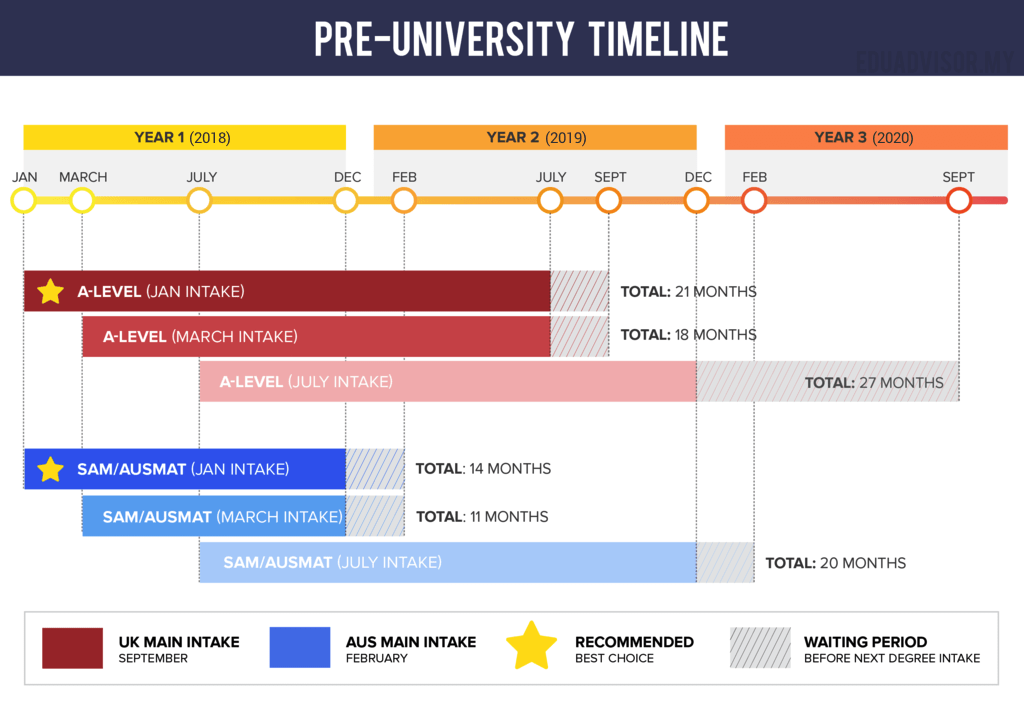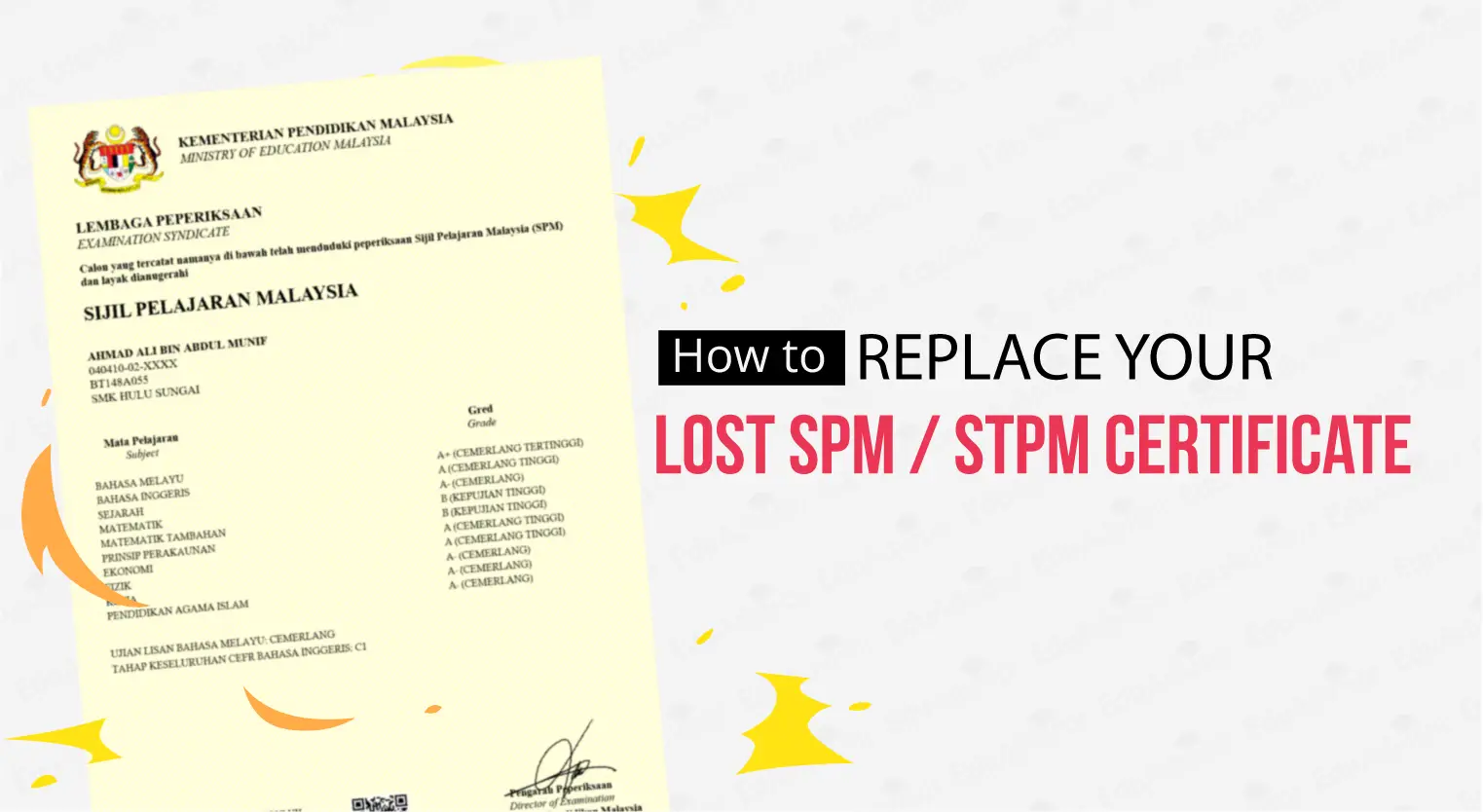4 Reasons Why You’ll Want to Enrol for the January Intake After SPM
With several college intakes to choose from within a year, how do you decide which to choose? Check out our 4 reasons why choosing a January intake after SPM is the way to go!
Updated 22 Aug 2019

If you’ve just completed your SPM or IGCSE, you can finally heave a sigh of relief!
But before you start catching up on lost sleep or going out to party with friends, have you thought about your options for college or pre-university? More specifically, have youthoughtaboutwhich intake toenrol in?
Depending on your course, there may be several intakes to choose from, which can affect when you graduate or whether you’ll have to speed through your syllabus. So, how do you go about selecting the right intake?
If you’re undecided, here are 4 reasons you shouldstart early andenrol in the January intakeafter SPM!
#1. You’ll avoid wasting time

For SPM-leavers, applying for the January intake usually makes the most sense!
For example, here are the scenarios for popular pre-university programmes:
- For A-Level programmes: Starting in January will allow you to finish your course in June the following year, completing just in time to start your UK Degree in September.
- For Australian Matriculation (SAM / AUSMAT) programmes: Starting in January will allow you to finish your course in November, completing just in time before the Australian intake that’s typically in February.

As you can see, the timings usually work in your favour if you start in January.
However, even if you haven’t decided which degree to pursue, you could get the ball rolling towards obtaining your degree by pursuing a pre-university programme that would help you make up your mind.
After all, the sooner you enrol, the sooner you’ll find out where your interests lie and what your next course of action should be.
#2. You’ll graduate earlier than your peers

Starting college earlier usually translates to finishing college earlier, and there are many benefits of graduating before your friends!
Not that it’s a race, but graduating before your peers can act as a confidence booster and make you feel accomplished. You’ll also have a plethora of choicesand have more time to think ofover what to do next, such as:
- Go travelling.At this stage, you’re older and more mature than you werewhen you left secondary school, so your parents may be more willing to let you explore the world and see what it has to offer.
- Get work experience. If you need more time to figure out what you want to pursue as a career, you could use your free time to pursue an internshipto understand more about the industry that you’re interested in.
- Engage in your hobbies, such as writing or photography. Who knows, the content on your blog or photographs you share on social media could eventually be used to build your portfolio if you decide to pursue writing or photography as a career!
- Make some money. If you want a break before entering the workforce, fret not! You can still earn some money without an actual job, giving you the flexibility to do what you want in your free time.
Got Your SPM Results?
Upload your SPM results and get a list of personalised scholarship offers — instantly.
Start Now#3. You’ll have more time to study

It’s worth noting that students who enrol in the March intake for certain programmes (e.g. A-Level) may graduate at the same time as those who joined the January intake. This is because March intakes are designed as an express route.
Although you’ll be tossing your mortarboard in the air with the January cohort, you’ll have to rush through the syllabus to catch up with them, which can be overwhelming for you.
Apart from managing your academic workload, you’ll also have to cope with the transition from secondary school to college, which can add to your stress levels. In this instance, it might be wise to join the January intake instead, giving you a head start to adapt to your new environment and focus on doing well in your exams.

#4. You’ll avoid a motivation slump

For many students, life post-SPM may mean staying up late, bingeing on TV shows and having the luxury to be unproductive after months of intense cramming.
While we certainly empathise, prolonging this period by choosing a later intake, such as in July, canmake it difficult for you (both physically and mentally) to slip back into a structured routine that requires focus and drive.
By joining the January intake, you can avoid the motivation slump that comes after an extended period of being lazy! Additionally, your motivation to stick to your New Year resolutions may be at an all-time high in January, so it's better to keep the momentum goingby taking only a short break after SPM before continuing with your tertiary education.
It’s also worth noting that research suggests, being idle for too long may not be good for us and that we’re wired to be busy! While it’s good to relax and get some much-needed rest, too much of a good thing can cause adverse effects.
DID YOU KNOW
You can get personalised counselling and college recommendations from our team of experienced advisors. Click here to get in touch with an advisor now.
So there you have it! We hope that you’ll mull overthese reasons when deciding which intake to choosebefore you plunge into the exciting depths of college life. Be a go-getter and get started on carving out your future the best you can!






